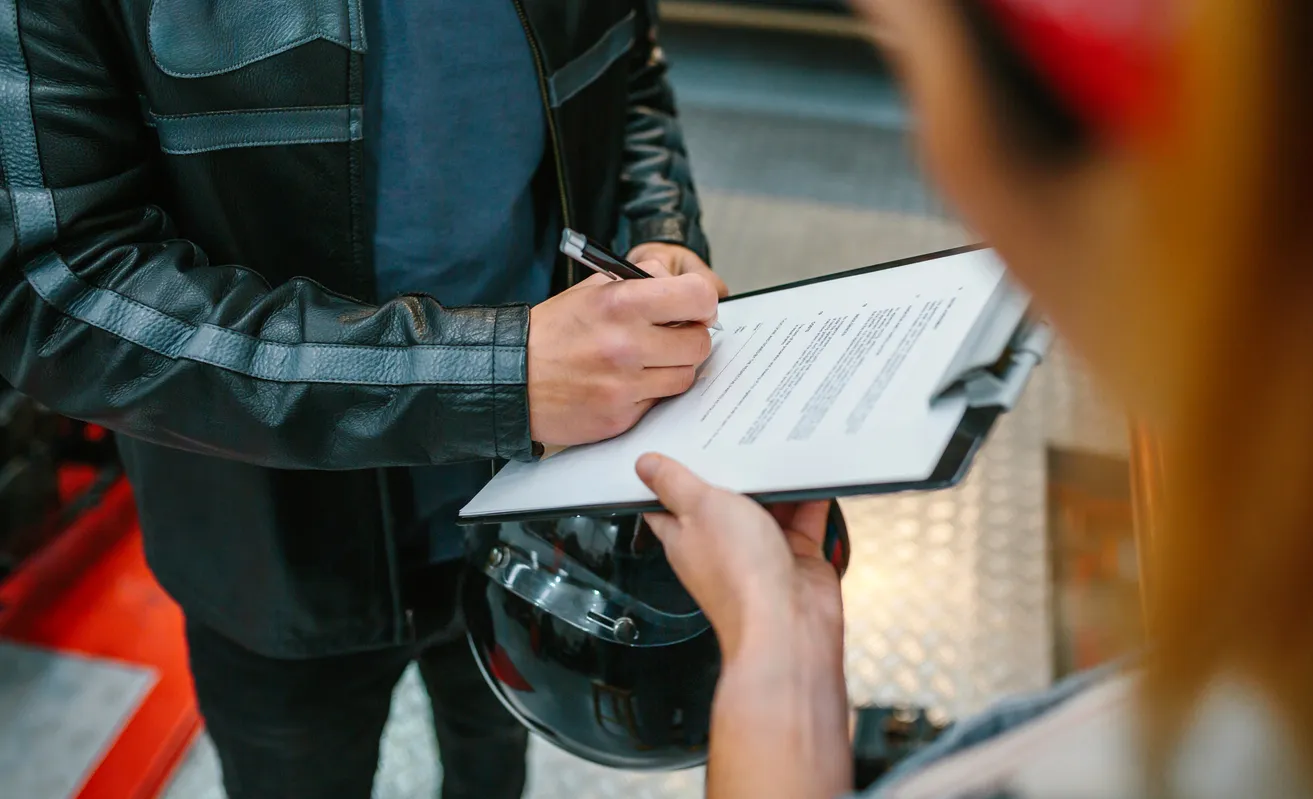What Paperwork Do I Need to Sell a Motorbike in the UK?

Selling your motorbike in the UK isn’t just about finding a buyer and shaking hands — it also involves making sure the right paperwork is in place. Whether you’re selling privately or through a service like MotoDealer, having your documents in order can speed up the process, protect you legally, and help you get the best possible price. Below is a guide to the key paperwork you’ll need, and why it matters.
V5C Logbook (Vehicle Registration Certificate)
The most important document when selling your motorbike is the V5C, often referred to as the logbook. This proves that you are the registered keeper of the bike. It contains the vehicle’s details (such as make, model, colour, engine size, and VIN) and the registered keeper's information. When you sell your bike, you’ll need to complete section 6 of the V5C with the buyer’s details and send the appropriate part to the DVLA. If you're selling to a dealer, you’ll use the V5C/3 section instead. Today, many sellers prefer to notify the DVLA online, which can be done in a few minutes and instantly updates the registration record. If you’ve lost your V5C, you can request a replacement from the DVLA using a V62 form. It costs £25 and usually takes up to 5 working days.
MOT Certificate (if applicable)
If your motorbike is more than three years old, you’ll need a valid MOT certificate. While it’s not legally required to show this during the sale, having a valid and recent MOT gives buyers peace of mind and may increase the value of your bike. A bike without an MOT is still sellable, but it will typically lower the price, since buyers will factor in the cost and uncertainty of repairs.
Service History and Receipts
Service history isn’t mandatory, but it’s highly valuable. A well-documented history of servicing, oil changes, and repairs shows that the bike has been cared for. This can significantly boost buyer confidence — and the price you’re offered. If you’ve had work done at a dealership or garage, include all receipts, even for tyres, chain replacements, brake pads, and accessories. If you’ve serviced the bike yourself, note down the dates and work completed.
Proof of Purchase (Optional but Useful)
When you originally bought the motorbike, you may have received a bill of sale or invoice. While this isn’t necessary to sell the bike, it can be helpful, especially if there are questions about ownership history or warranty coverage.
Owner’s Manual and Spare Keys
Again, not essential, but nice to have. Including the original owner's manual and any spare keys shows that you’ve taken good care of the bike. For some brands, particularly premium ones like BMW or Triumph, having the full set of documentation and accessories can make a meaningful difference in resale value.
Insurance and Tax (Just for Info)
You don’t need to transfer your insurance or tax to the new owner. In fact, you should cancel your insurance as soon as the bike is sold, and request a refund for any remaining coverage. Likewise, vehicle tax (road tax) is not transferable — the new owner will need to tax the bike themselves.
Final Thoughts
Having your paperwork in order makes the sale smoother, protects you from future liability, and builds trust with the buyer. Whether you’re selling to a private buyer, through a classified site, or using a professional service like MotoDealer, taking the time to prepare your documents will pay off. At MotoDealer, we help you through every step of the process — and yes, we’ll remind you which documents you’ll need. So if you're ready to sell your motorbike, start by getting a free valuation and let us guide you all the way.




